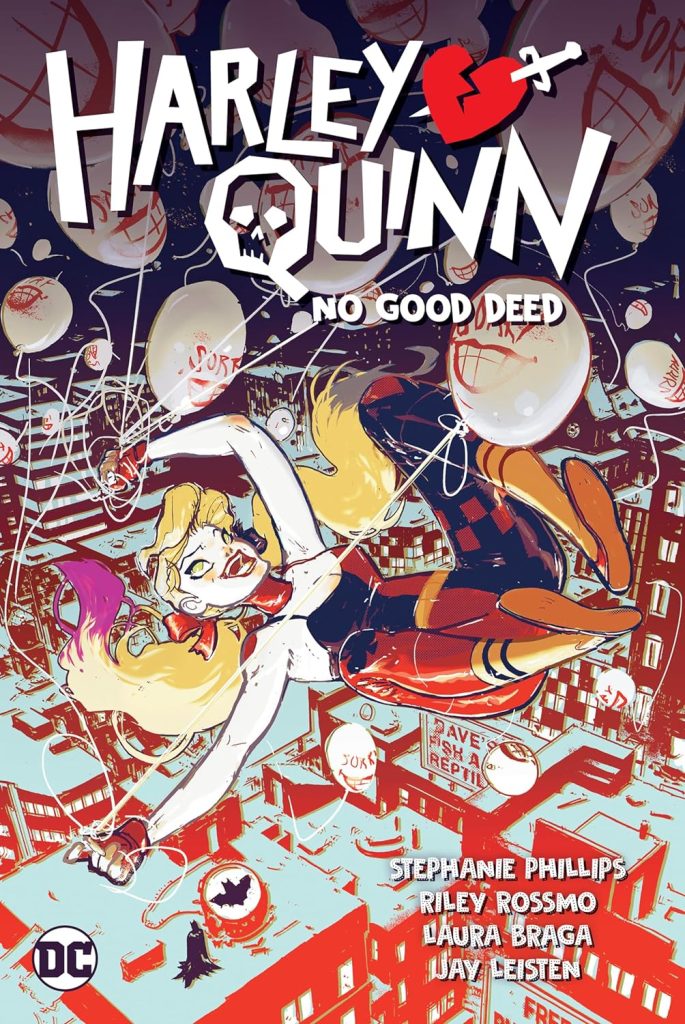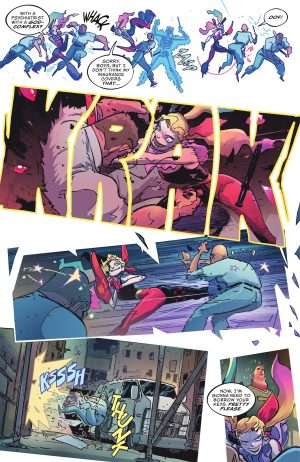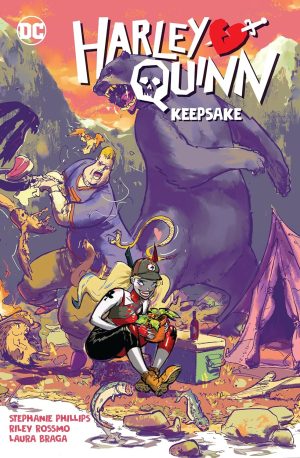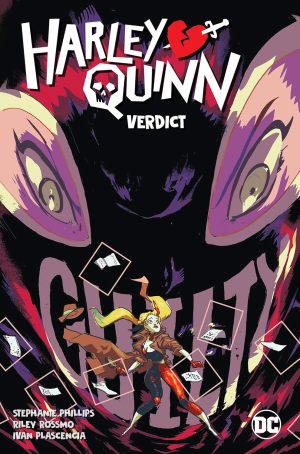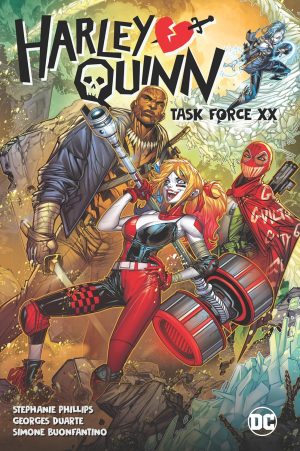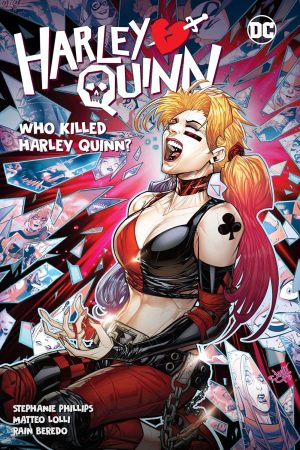Review by Karl Verhoven
What propels Stephanie Phillips’ work on Harley Quinn is Harley’s newfound desire to make amends for her previous misdeeds. It’s the same crackpot Harley, but now her intentions are good. It’s under Batman’s supervision, and in order that Harley doesn’t have to talk to herself, or at least not all the time, she’s saddled with Kevin, an overweight idiot who was dim enough to have the Joker’s face tattooed on his double chins and who is also searching for redemption.
Transferring My Name is Earl’s premise to Harley is a smart method of being able to maintain Harley’s loose cannon persona while slowly transitioning her to a more acceptable person overall. Phillips also gives her a strategic and forceful enemy in Dr. Hugo Strange. As he also has a psychiatric background having him as Harley’s foe is viable, but slim reasoning has him released from a mental health facility to take over Gotham’s policy of rehabilitating those who’d aligned themselves with the Joker. Strange is also, well, strangely unsupervised given his background, able to stride through state of the art labs proclaiming “We’re already behind schedule and we’ll need more bodies for another round of testing”.
If there’s a feeling that removing Harley’s war on society might tone down the weirdness, it’s immediately provided by Riley Rossmo’s art. More usually associated with horror projects, it’s cartooning, but not of the slapstick manner usually associated with Harley. It’s also stylistically exaggerated, and Hugo Strange with Desperate Dan’s chin might be a step too far for some, but the disorienting nature conveys Harley’s world with a threatening edge. Creative spreads are also a speciality for Rossmo.
The initial impetus fades away slightly, but Phillips manages to renew the mojo when she has Harley personally engaging with Strange, featuring some fine psychiatrist’s banter. The title story closes well, although Strange needs explained a little more clearly next time he’s up to bat.
Anyone who prefers Harley drawn more traditionally will enjoy Laura Braga’s excellent art on the opening and final chapter, both teaming Harley with friends. The first looks back on the relationship between Harley and Poison Ivy, which at the point it transcended close friendship seemed more pandering than a natural evolution, and here’s the break-up. The closer is a meeting with Catwoman, a former Batman’s foe who’s far further along the path to redemption, and joyful for that as it also inches ongoing plots further forward.
Ultimately, as a quick check of other reviews shows, whether or not you’ll like No Good Deed is going to depend greatly on the personal appeal of Rossmo’s art. Plenty find it off-putting, and are forthright in saying so. If that’s the case, you should know he’s still around for most of the series, with Keepsake next.
